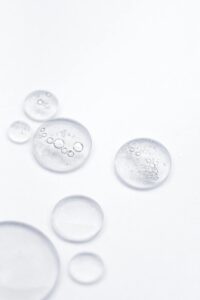Staying hydrated is crucial for maintaining overall health and well-being. Water is essential for numerous bodily functions, including regulating temperature, maintaining electrolyte balance, and facilitating digestion. But how much water do you really need? In this article, we’ll explore the importance of hydration, the factors that influence your water needs, and practical tips for ensuring you stay properly hydrated.
Why Hydration Matters
Water is the primary component of the human body, accounting for about 60% of body weight. Every system in the body depends on water to function correctly. Here are some key reasons why staying hydrated is important.

Supports Vital Functions
Water is essential for various physiological processes, including:
- Temperature Regulation: Helps maintain a stable body temperature through sweating and respiration.
- Joint Lubrication: Keeps joints lubricated, reducing the risk of injury and pain.
- Nutrient Transportation: Transports nutrients and oxygen to cells and removes waste products.
- Digestion: Aids in digestion and prevents constipation by keeping the digestive tract moist.
- Cognitive Function: Supports brain function, improving concentration, memory, and mood.
Prevents Dehydration
Dehydration occurs when the body loses more water than it takes in. Even mild dehydration can cause symptoms such as:
- Thirst: The body’s natural signal for needing more water.
- Dry Mouth: A common sign of insufficient fluid intake.
- Fatigue: Lack of water can lead to decreased energy levels and fatigue.
- Dizziness: Can result from low blood pressure caused by dehydration.
- Reduced Urine Output: Dark yellow urine can indicate dehydration.
Severe dehydration can lead to more serious health issues, including kidney stones, urinary tract infections, and even kidney failure.

How Much Water Do You Need?
The amount of water you need depends on various factors, including age, gender, weight, activity level, and overall health. While the commonly cited “8×8” rule—eight 8-ounce glasses of water per day—is a good general guideline, individual needs can vary significantly.
Factors Influencing Water Needs
- Body Weight: Larger individuals generally require more water.
- Activity Level: Physically active people need more water to replace fluids lost through sweat.
- Climate: Hot and humid environments increase the need for hydration.
- Diet: High-salt or high-protein diets can increase water requirements.
- Health Conditions: Certain medical conditions, such as fever or diarrhea, increase fluid needs.
Recommended Daily Intake
The National Academies of Sciences, Engineering, and Medicine suggests the following daily water intake:
- Men: About 3.7 liters (125 ounces) of total water (from all beverages and foods) per day.
- Women: About 2.7 liters (91 ounces) of total water per day.
These recommendations include water obtained from beverages and food. Approximately 20% of daily water intake typically comes from food, with the rest from drinks.
Practical Tips for Staying Hydrated
Maintaining proper hydration is essential for optimal health. Here are some practical tips to help you stay hydrated throughout the day:
Drink Regularly
- Set Reminders: Use phone alarms or apps to remind you to drink water at regular intervals.
- Carry a Water Bottle: Keep a reusable water bottle with you to sip on throughout the day.
- Drink Before Thirst: Don’t wait until you’re thirsty to drink water; by then, you may already be mildly dehydrated.
Eat Hydrating Foods
Incorporate water-rich foods into your diet, such as:
- Fruits: Watermelon, strawberries, oranges, and cucumbers.
- Vegetables: Lettuce, celery, zucchini, and tomatoes.
- Soups and Broths: These can contribute significantly to daily fluid intake.
Monitor Your Hydration Status
- Check Your Urine: Light yellow or clear urine generally indicates adequate hydration.
- Pay Attention to Thirst: Use thirst as a guide but don’t rely solely on it.
- Listen to Your Body: Fatigue, headaches, and dry skin can be signs of dehydration.
Conclusion
Hydration is a fundamental aspect of health that supports numerous bodily functions. While individual water needs vary, staying aware of factors that influence hydration and adopting practical strategies can help ensure you meet your daily water requirements. Remember to drink regularly, consume hydrating foods, and monitor your hydration status to maintain optimal health and well-being.
